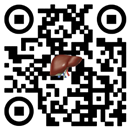肝癌早期诊断及治疗--Morris Sherman教授专访
文章导读:实际上只有一种早期发现肝癌的方法,就是定期进行超声检查。许多地方对血液肿瘤标志物进行检测如甲胎蛋白以便能早期发现肿瘤,但问题是肿瘤越小,甲胎蛋白或其它标志物阳性的可能性也越小。如果真的想早期发现小肿瘤,那么真正需要使用的最敏感的检测方法就是超声。
Hepatology Digest: Early detection of HCC is obviously very important for the treatment and prognosis of HCC. Can you give us some of your suggestion and summarized for us some of the latest research related to how we can detect HCC early on?
国际肝病:显然早期发现肝癌对于治疗和预后十分重要。您能否给我们一些建议或对最新关于肝癌早期诊断的研究给我们做一些总结?
Professor Morris Sherman: There is really only one way to detect HCC early and that is to do regular ultrasound screening. Many places use blood tests such as alpha fetoprotein in an attempt to identify tumors but the problem is that the smaller the tumor, the less likely it is that the alpha-fetoprotein or any of the other markers is going to be positive. If you really want to find the smallest, earliest tumor then you really need to use the most sensitive test available, and that is the ultrasound. It should be applied regularly, every six months. There is really no benefit from using alternating strategies, which some people use, of ultrasound and alpha fetoprotein at six month intervals. The idea really is that you use your most sensitive test and apply it at the appropriate intervals.
Professor Morris Sherman: 实际上只有一种早期发现肝癌的方法,就是定期进行超声检查。许多地方对血液肿瘤标志物进行检测如甲胎蛋白以便能早期发现肿瘤,但问题是肿瘤越小,甲胎蛋白或其它标志物阳性的可能性也越小。如果真的想早期发现小肿瘤,那么真正需要使用的最敏感的检测方法就是超声。应该定期进行检测,如每6个月检查一次。一些医生使用每6个月进行超声和甲胎蛋白交替检查的策略,其实没什么益处。正确的做法是使用最敏感的检查方法,并间隔适当的时间。
Hepatology Digest: In addition to alpha fetoprotein, are there any other useful markers for early detection of HCC?
国际肝病:除甲胎蛋白外,还有没有其它对肝癌的早期诊断有用的标志物?
Professor Morris Sherman: There are other markers that are used. The PIVKA-2 or AFPL-3 are other markers that are often used, but really their effectiveness in the early detection of cancers, or screened cancers, has not been demonstrated. There is a good deal of data to suggest that they are not very good markers because alpha fetoprotein and these other two markers are also more common and more commonly expressed in advanced cancers. There is just not good in having a screening test, which detects advanced cancers because you are not going to be able to cure a large number of them. You really want a screening test which is going to pick up curable cancers, and those markers really don’t meet that criterion.
Professor Morris Sherman: 还有其它的标志物。如PIVKA-2或AFPL-3是目前经常使用的标志物,但实际上它们在早期发现癌症中的效果还没有得到证实。有大量的研究表明它们并不是很好的标志物,因为甲胎蛋白和其他两个标志物也仅仅在晚期癌症表达更加常见。如果一个检测仅仅能检测到晚期肿瘤,那么这就不是一个很好的检测,因为很多晚期肿瘤患者根本无法治愈。我们真正需要的是能够早期筛选出可治愈的肿瘤的检测方法,而这些标志物均未达到这样的标准。
Hepatology Digest: When it comes to the most effective treatment for early HCC, among surgical, non-surgical, radio frequency ablation therapy, etc. Can you talk a little about which you might currently favor? And why?
国际肝病:关于早期肝癌最有效的治疗方法,如手术,非手术,射频消融治疗等等。您能谈一下您比较倾向于选择哪种治疗方法?为什么?
Professor Morris Sherman: Depending on where you are in the world the optimal treatment of choice is different. For instance, in Japan these lesions are treated with chemoemobilization whereas most other places in the world reserve chemoembolization for more advanced tumors. The optimal treatments are probably resection and radio frequency ablation. The kinds of patients that are suitable for these two treatments are not necessarily the same, although there is some overlap. Really what you want to be able to do is to get rid of the tumor completely which resection can certainly do. There are patients whose liver disease is sufficiently advanced that resection is not possible. Those cases are obviously candidates for radio frequency ablation. There are patients who may be candidates for radio frequency ablation but have a lesion that is not accessible or likely not to be fully ablated and are obviously surgical candidates. There are also patients who could go either way.
Professor Morris Sherman: 世界上不同地区最佳的首选治疗是不同的。例如,在日本早期HCC常常选择化疗栓塞治疗,而其他大多数地方化疗栓塞常常用于治疗更晚期的肿瘤患者。最佳的治疗可能是切除术和射频消融。适合这两种治疗的患者其病情并不一定相同,尽管有一些重叠。真正要做的是彻底切除肿瘤,而根治术可以做到这一点。有些患者肝脏疾病已经发展到晚期,手术切除是不可能的。显然这些患者适合进行射频消融。有些患者虽然适合射频消融治疗但可能存在无法完全消融的病灶,显然此时适合手术治疗。也有患者任何一种治疗都可以。
Hepatology Digest: There has been some progress in HCC screening with more patients being diagnosed early so there are many changes and challenges in clinical practice. Could you give us a brief introduction on what is new in clinical practice, some of the changes you’ve observed, and any progress you think has come or will come in the future?
- 相关内容延伸阅读 ⇓
- 01. 血清α-L-岩藻糖苷酶(AFU)及甲胎蛋白(AFP)对原发性9389
- 02. 甲胎蛋白:让肝癌现原形9897
- 03. 原发性肝癌的病因排查7565
- 04. 肝癌也有家族史7812
- 05. 上消化道出血9431
- 06. 揪出诱发肝癌的“主谋”8369
热门阅读
- 01. 专家:肝腹水患者应忌酒
- 02. 下肢局部水肿肝硬化
- 03. 常见的肝腹水的危害分别有哪些?
- 04. 认清原发性肝癌的症状
- 05. “希望家园”患者可两次免费检测病毒
- 06. 酒精肝不同时期的症状
- 07. 导致脂肪肝的原因 4手段帮你“揪出”脂肪肝
- 08. 乙肝大三阳可以怀孕吗 病毒载量不做怀孕参考
- 09. 乙肝患者怎样保肝
- 10. 晚期肝癌的治疗方法介绍
图片推荐

乙肝大三阳会发展为肝硬化吗?
有患者咨询:我是一名乙肝大三阳患者,患有乙肝有7、8年了,一直以来肝功能都是正常的,最近我上网发现一些资料说乙肝大三阳有可能会发展为肝硬化,我心里很胆小,请问,乙肝大三阳会发展为肝硬化吗?对此,肝病医

卫生部拟制订方案报请国务院取消医疗广告
吴仪与本报记者廖卫华(右一)交谈。昨日,国务院副总理吴仪到人大江西代表团与代表们一起审议政府工作报告卫生部常务副部长高强(资料图) ——来源:新京报 本报讯 目前相关部门正拟订相关方案准备报国务院,

肝硬化患者的生活起居要注意什么?
肝硬化患者的生活起居要注意什么?一旦家里有人患上了肝硬化,家属在积极治疗的同时,还要想办法提高患者的生活质量,因此在生活起居中要注意很多方面,那么肝硬化患者的生活起居要注意什么呢?下面我们就来简单了解

肝病患者宜补充维生素c
肝病患者宜补充维生素c,大家都知道乙肝患者自身免疫力下降,容易感冒,平时增增加免疫力和饮食调养很重要,要多吃新鲜蔬菜和水果。补充维生素和蛋白质,在春节即将来临的时候,也是天气最冷的时候,预防感冒很重要

生活中如何有效预防乙肝?
生活中如何有效预防乙肝?乙肝属传染性疾病,生活上如果不注意很容易被感染,那么我们在日常生活中如何有效预防乙肝呢?下面我们来简单了解一下。 一、生活上的措施 乙型肝炎病毒以其病毒含量的多少做为传染指

什么是海王?海王是什么意思梗,网络流行词海王介绍
【什么是海王?海王是什么意思梗】海王是什么意思梗?别人叫你海王是什么意思你知道吗?不知道且感兴趣的小伙伴,赶紧跟随猎奇岛小编来了解一下什么是海王吧!海王,在网络上常与中央空调同义。海王指暧昧关系众多,

孕28周起注射HBIG可有效阻断母婴传播 阻断率达90%以上
上海复旦大学附属儿科医院朱启镕教授在参加暨南大学附属第一医院(广州华侨医院)举办的《乙肝病毒及其他相关病毒感染孕妇的围生期管理研讨班》上指出,乙型肝炎病毒感染给我国造成最为严重的疾病负担,由于至今尚无

乙肝患者能吃灵芝吗?
灵芝,大家都不陌生,其是中国传统珍贵药材,具备很高的药用价值,关于灵芝在本草纲目记载:“灵芝性平,味苦,无毒,主胸中结,益心气,补中,增智慧,不忘,久服轻身不老,延年神仙。”那如此治好,乙肝患者能吃灵


